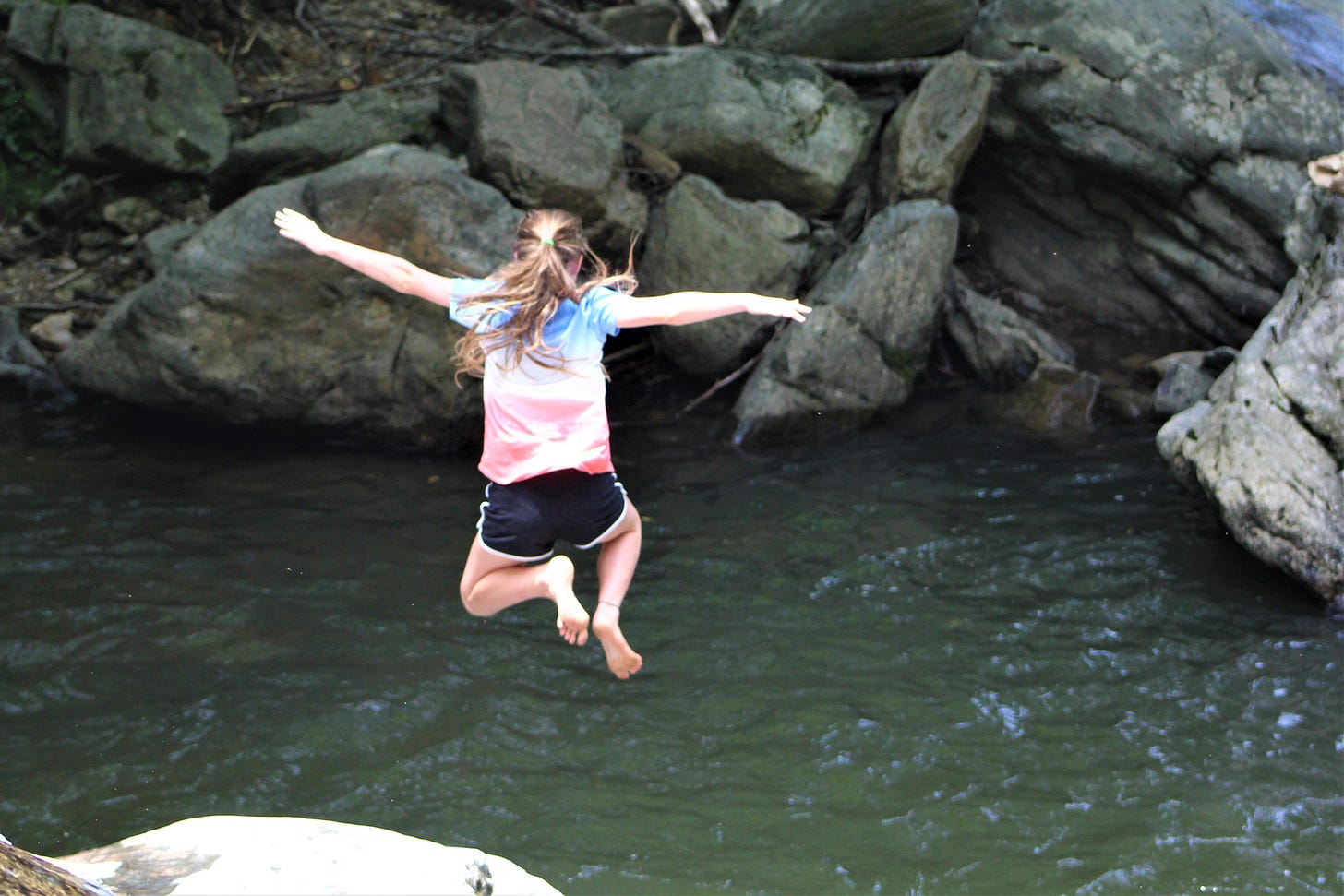Summer is probably the most dreamed about, written about, and longed for season in America.
For most of America’s children and young adults, summertime means freedom. The school year schedule fades away and the longer, warmer days are replaced with uninterrupted sleep, exploration, visiting with family and friends, vacationing, and learning new information simply because of a desire and curiosity to know, not in order to pass a test or check a box.
The alarm bells cease and desist.
Stress subsides and growing minds are happily given more time to wander and wonder.
There seems to be a universal respect of the unscheduled, free flowing days of summer and a recognition that it really needs to be a time when kids can just exist without adult meddling, over planning, and directing their every move.
But why just summer?
Can’t this, or more importantly, shouldn’t this be the reality for children all year long?
I believe we collectively accept that learning is essential to our society and knowledge sharing is what helps us advance as a society, even prevents us from making terrible, or even deadly mistakes. But isn’t it possible that we have gone about knowledge sharing the wrong way?
The current traditional system creates an us (educators) versus them (family) mentality that puts what the system wants over what each unique child needs to become educated. The freedom to learn and interact with information in a pace and way that matches their own development is rarely an option.
The idea that children can direct their own learning is brushed aside in favor of boxed curriculum, standardization, and academic benchmarks which are sold as the only way to obtain the dangling carrot of K-12 education, the high school diploma.
Here’s the rub.
We know that a high school diploma isn’t enough anymore to secure a well paying job in our current economy. Not to mention the rules for receiving one changes from state to state, in essence making the diploma difficult to valuate and certainly gives us no clear understanding of the possible skill set an individual has.
So, you go to school for 13 years, spend over 14,000 hours under the direction of educators, add in homework, projects, and other required school related activities and you can’t get a well paying job?
Is this really the best use of time for our vibrant, full-of-life, kids?

What we do know and what has been consistently the case since the beginning of time, is that learning is as natural of an activity as eating, sleeping, and procreating, all of which are extremely unique to the individual.
Children are by far the most unique in regards to learning because their brains take in information at break neck speed. They don’t miss anything!
“So if you want to expand your consciousness, you can try psychedelic drugs, mysticism or meditation. Or you can just go for a walk with a 4-year-old.” –Alison Gopnik
Do kids truly need adults to manage/control all their learning? I don’t think so.
Do children need supportive, loving, resourceful adults in their lives who understand the value of creating an enriching environment and opportunities? Absolutely. In this case, you could not stop learning even if you tried.
When our brains are excited, interested, and engaged we learn without any lesson plans or worksheets needed. On the flip side, we know humans do not learn well under duress. Stress affects how our brains process information and basically shuts down learning. This is true with overwhelm of any kind. Even positive overwhelm. Have you heard of post-concert amnesia?
However, most stress children face are due to circumstances outside of their control. When they come to school emotionally unregulated, worried, frightened, or downright hungry and are expected to put all that aside to take in whatever information is on the agenda, it’s no surprise that their grades suffer or they lose interest in school. They are not being seen.
School itself can be a source of stress. Just do a Google search for “is school causing stress” and you will get way more stories, studies, and reports then you will ever have time to read.
It doesn’t have to be this way.
We can and should support and embrace knowledge autonomy in our society and help our children reach their full potential. When individuals are allowed to gather information in a way that is unique and personal to them learning is richer, deeper, and more meaningful and this helps ALL of society.
Will they have piles of worksheets or tests in folders to prove their knowledge? Not likely, but that isn’t necessary.
Schooling isn’t necessary either to create learners.
What they need is time, space, and the flexibility to interact with a variety of interests without feeling pressure to adhere to arbitrary timelines. Our institutions have created these timelines then told parents and kids they are “behind” if they don’t adhere to them. What happened to respecting the individual?
We know development is on a spectrum. No one in their right mind would say that all five, ten, or fifteen-year-olds learn at the same rate or in the same way. There is variation amongst the population. Naturally. So, instead of creating a sense of learning emergencies, why not seek summertime type freedom, all year long?
Self-directed education creates this possibility.
Sure, there are challenges and sometimes failure, because that is life. But we pick ourselves back up and try again without focusing so much on what other people are doing or if we are measuring up to the group.
Or as Dr. Jordan Peterson says in his book 12 Rules for Life:
“Compare yourself to who you were yesterday, not to who someone else is today.”
Self-directed kids learn early on that life is trial and error and that living life IS learning.
Academic standards aren’t completely thrown out the window, they just shift. Instead of being what controls our days, they are pieces of information that get added to the experience of being human. What takes a front seat is exploration, relationship building, self-awareness, and discovery. The inclination to test and challenge onself through interests and activities occurs naturally. No need for forced and coercive tests and grades unless the child simply wants to know.
This is the basic recipe for self-directed education.
Transitioning to a less constrained life can feel scary when all you have known is the ridgid structure of government schooling. I get it. I was once in your shoes. I used to think, “Who am I to reject an institution that has been a hallmark of American life for generations?” It was off-balancing, actually. Especially as a trained teacher.
Now, with my oldest in college, arriving there without spending his formative years behind desks and classroom walls, we sit in a reflective space with grateful hearts.
We listened. We trusted. And we jumped.
Are you ready to leap?



